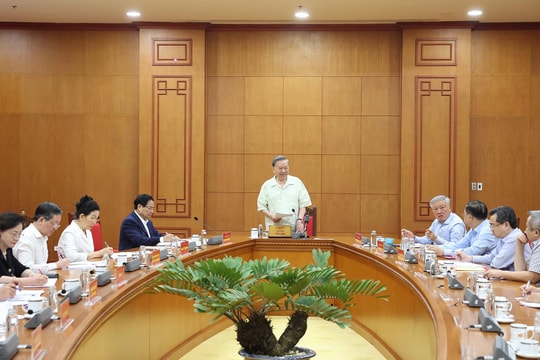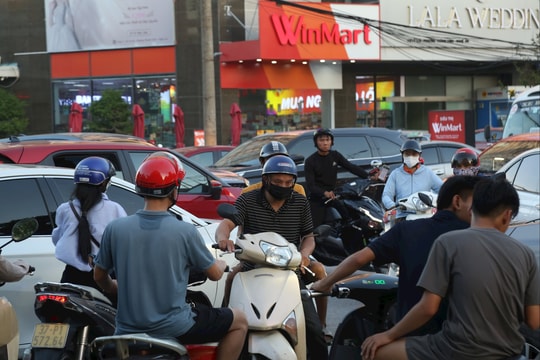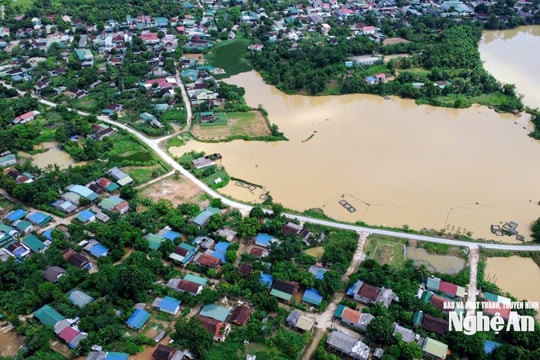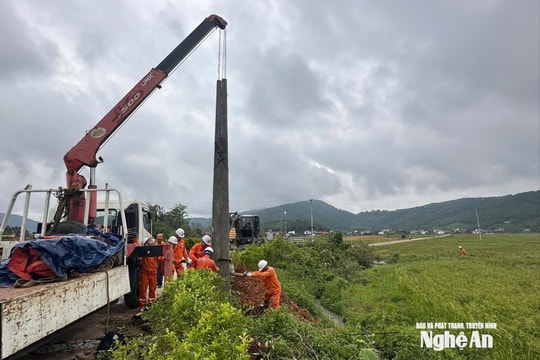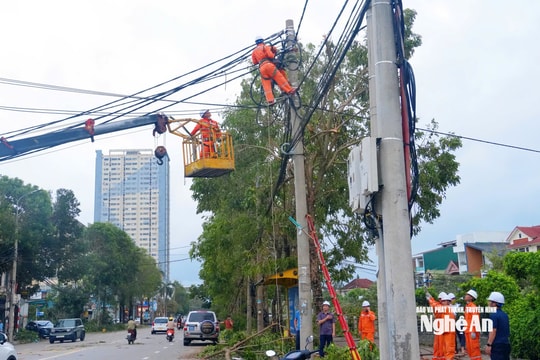Vietnam successfully completed its rotational mission in ASEAN.
Deputy Foreign Minister Nguyen Quoc Dung affirmed that Vietnam has successfully completed its rotational mission in ASEAN.
Deputy Foreign Minister, Head of ASEAN SOM Vietnam - Nguyen Quoc Dung answered the press interview on the occasion of the conclusion of the 51st ASEAN Foreign Ministers' Meeting and related meetings.
PV:Could you please tell us the main features of the AMM-51 Conference?
Deputy Minister Nguyen Quoc Dung:This conference took place in the context of many new developments in the world and regional situation, the results of which were shown in the following points:
Firstly, ASEAN achieved many important results in implementing the theme 'Resilience and Innovation': ASEAN countries emphasized strengthening cooperation in economic and development fields both within the bloc and with partners; focusing on promoting regional connectivity (effectively implementing the ASEAN Connectivity Master Plan in conjunction with other sub-regional and inter-regional development plans), sustainable development (linking the ASEAN Community Building Roadmap with the UN's sustainable development goals to 2030, implementing work to narrow the development gap), innovation and creativity to take advantage of new technological advances from the 4.0 Industrial Revolution (including digital economic development, forming the ASEAN Smart Cities Network, data digitization, etc.).
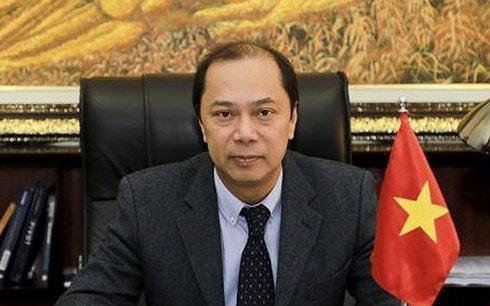 |
| Deputy Foreign Minister, Head of ASEAN SOM Vietnam Nguyen Quoc Dung (Photo: VNA) |
ASEAN has demonstrated its steadfastness in effectively responding to regional issues; promptly expressed solidarity and mutual support for Laos after the hydropower dam collapse, through assistance activities of the ASEAN-AHA Coordinating Centre for Humanitarian Assistance.
ASEAN has consistently maintained its principled stance on important issues that affect regional peace and stability, such as the East Sea. Despite varying levels of concern, the countries have agreed on basic principles, discussed their views on issues on the ground, and on negotiating the Code of Conduct in the East Sea (COC).
To date, ASEAN and China have reached a single draft negotiating text on the COC that has been acknowledged by the Ministers, serving as a basis for continuing negotiations on the COC.
ASEAN continues to maintain its central role in harmonizing relations with its partners. On this occasion, ASEAN flexibly responded to the requests of its partners India, Australia and South Korea for the High-Level Organization without much impacting ASEAN's internal regulations.
Monday,ASEAN and its partners reached a high consensus on the commitment to support and promote the international multilateral system based on rules, maintain economic connectivity, and liberalize trade and investment in the context of increasing protectionism and anti-globalization trends.Most partners share with ASEAN the importance of maintaining a rules-based order, respecting international law, supporting the role of multilateral institutions, including the WTO, affirming active coordination to soon complete negotiations on the Regional Comprehensive Economic Partnership (RCEP) and ratify the Comprehensive and Progressive Agreement for Trans-Pacific Partnership (CPTPP); stating that trade and investment relations are reciprocal and mutually beneficial, so all parties need to make efforts to balance and harmonize each other's interests.
The ASEAN Foreign Ministers also raised the issue of trade with the US, saying that ASEAN countries only have a surplus in trade in goods, while having a deficit in trade in services. Not only does US investment create jobs in ASEAN countries, but ASEAN investment abroad also creates hundreds of thousands of jobs in the US.
ASEAN and some partners expressed interest in promoting the possibility of considering negotiating some new FTAs such as with Canada or resuming previously difficult FTA negotiations such as with the EU (in ASEAN, Singapore and Vietnam have established bilateral FTAs with the EU).
Third, ASEAN agreed to develop a proactive approach to new cooperation initiatives/proposals in the region. With the emergence of many new cooperation initiatives and ideas such as the Indo-Pacific, Belt & Road, High-quality Infrastructure Partnership, etc., ASEAN discussed and agreed to develop a proactive approach to exploit the common points of these initiatives, on the basis of meeting the principles and goals set out by ASEAN, thereby seeking cooperation opportunities.
The partners welcomed ASEAN’s approach. Some countries continued to see ASEAN playing a central role in the Indo-Pacific strategy; meanwhile, China proposed closely linking the Belt and Road Initiative with the Master Plan on ASEAN Connectivity (MPAC) 2025.
PV:Could you tell us about the general atmosphere of this Conference?
Deputy Minister Nguyen Quoc Dung:The Ministers had a busy schedule with many multilateral and bilateral activities, important, practical and effective discussion contents.
Deputy Prime Minister and Minister Pham Binh Minh, in addition to attending more than 30 activities of the Conference, had 15 bilateral meetings with ASEAN colleagues and partners on the sidelines of the Conference.
Although it cannot be denied that there are still different views, in general, the Conference took place in a positive and favorable atmosphere.
The spirit of sharing among ASEAN countries and partners in the face of natural disasters in Laos, Indonesia, and Myanmar shows that solidarity, cooperation, and mutual assistance within ASEAN remain the mainstay.
PV:Deputy Minister, please tell us about Vietnam's participation and contribution.
at this Conference?
Deputy Minister Nguyen Quoc Dung:Vietnam attended the Conference in a proactive spirit, actively supporting the priorities proposed by the Chair, Singapore. In his speeches at the meetings both within ASEAN and with partners, Deputy Prime Minister and Minister Pham Binh Minh presented Vietnam's viewpoints and approaches in line with the common concerns at the Conference, receiving the sharing and active support from other countries.
In fact, the priorities on Self-Reliance and Innovation proposed by Singapore this year are completely consistent with Vietnam's interests and priorities in ASEAN during this period.
Specifically, Vietnam has actively participated in the ASEAN Smart Cities Network (including 3 cities: Hanoi, Ho Chi Minh City, Da Nang), proactively promoting cooperation with ASEAN on regional connectivity, applying the 4.0 Industrial Revolution... as well as strengthening self-reliance through ASEAN's central role).
The Deputy Prime Minister's comments on regional and international issues, including the situation in the East Sea, were similar to the opinions of many ASEAN countries and partner countries, creating a common awareness at the Conference.
After 3 years of assuming the role of coordinator of ASEAN - India partnership (August 2015 - August 2018), Vietnam has successfully completed this rotational task in ASEAN, contributing to promoting ASEAN - India cooperation with many positive results, receiving thanks and high appreciation from Indian partners. On this occasion, Vietnam also officially took over the role of coordinator of ASEAN - Japan relations for the period 2018-2021.
PV:Thank you, Deputy Minister!./.


